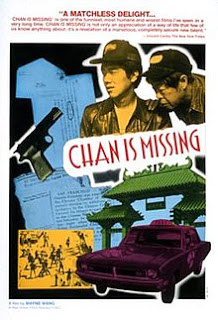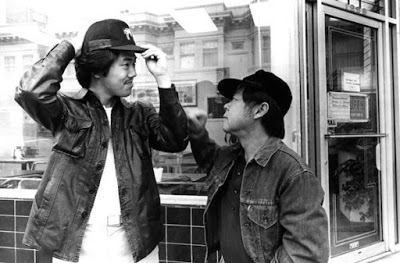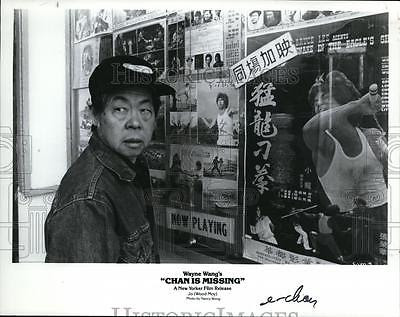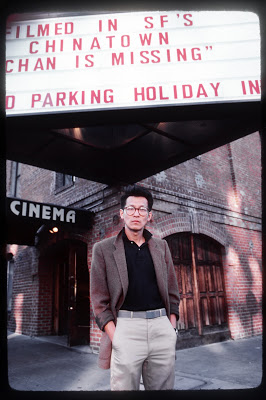Chan is Missing

Director: Wayne Wang
Year: 1981
Rating: 7.5
Eleven years before he directed the very successful The Joy Luck Club, Wayne
Wang began by making this independent low budget amusingly droll film about
the Chinese community in San Francisco's Chinatown. Wayne structures his
film almost like a black & white noir, but this device is used basically
to explore various issues of being Chinese in America - the conflicts between
the rightwing Taiwanese and the Mainland leftists, American Born Chinese
vs Fresh Off the Boat Chinese, the difficulties of assimilating into American
society but it also is a celebration of Chinese culture and the diversity
within that community. All done with a light hearted puckish sense of humor.
This is considered the first Asian-American film that was shown theatrically
outside of the Chinese community. In fact, there is not a white person to
be seen to emphasize both the insularity and the isolation of this world.
White people just don't matter.
Chan has gone missing with $4,000 that he borrowed from Jo (Wood Moy) and
Steve (Marc Hayashi). The two of them go in search for Chan all over Chinatown,
running down one fruitless lead after another, one dead end after another
that leads to a mysterious woman, an unexplained murder, a discovered gun,
warnings over the phone - but Chan is in Hitchcock terms the MacGuffin of
the film - we never see him - he doesn't matter and in the end the two of
them and we never find out what happened to Chan. It is the journey that
matters to the director and how in a very subtle casual comical form he is
able to talk about what he cares about.
The two actors who were basically amateurs at this point (Moy had been in
The Invasion of the Body Snatchers) are terrific and their back and forth
feels so real and natural as if they have been friends for years. Jo is a
taxi driver and by the end he says he doesn't even care about the money any
more, he just has to know what happened to Chan but in the end accepts that
life is not neat with endings like in TV detective shows.
Wang has had a peculiar career that I don't really understand. After Joy
Luck Club he jumped out of the Chinese focus that he had had with this film,
Dim Sum and Eat a Bowl of Tea to make two small films that take place in
Brooklyn - Smoke and Blue in the Face. Both were critically praised and then
he turned back to an Asian subject with the Chinese Box taking place in Hong
Kong and starring three huge stars, Gong Li, Jeremy Irons and Maggie Cheung.
The last thing I would have expected after this was the very mainstream Hollywood
films with Jennifer Lopez (Maid in Manhattan) and Queen Latifah (Last Holiday).
But after that for the next 12 years Wang has made films that are fairly
obscure - Asian related subjects again but none of them did much at the box
office. I don't know if this is because after Maid and Last Holiday he just
wanted to stay away from commercial films or has just not had many other
opportunities from Hollywood.




